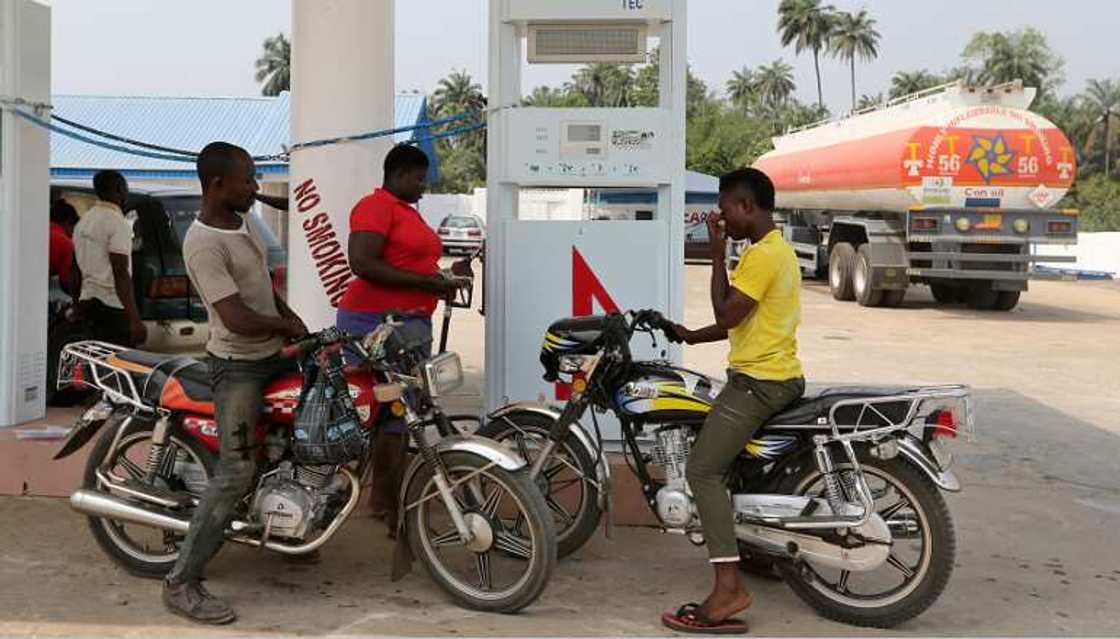Six Key Reasons for Reduction in Fuel Consumption in Nigeria Under Tinubu
In recent times, the fuel consumption pattern in Nigeria has taken a dramatic pattern as the Nigerian Midstream and Downstream Petroleum Regulatory Authority (NMDPRA), in its latest report, showed that the average daily petrol consumption in Nigeria fell by 28% in June 2023.
Unlock the best of Legit.ng on Pinterest! Subscribe now and get your daily inspiration!
In other words, there was a notable decline in average daily petrol consumption in June, dropping to 48.43 million litres, compared to the previous average of 66.9 million litres.
As fuel consumption patterns in Nigeria undergo significant changes, exploring the underlying causes that have led to this transformation is crucial.
From the removal of subsidies to the adoption of alternative energy sources, several factors have contributed to the reduction in fuel consumption across the country.
This listicle delves into six key factors shaping this trend and their implications for Nigeria's energy landscape.

Source: UGC
PAY ATTENTION: Share your outstanding story with our editors! Please reach us through info@corp.legit.ng!
Subsidy removal
The removal of the fuel subsidy, as announced by President Bola Tinubu in May 2023, played a pivotal role in reducing fuel consumption in Nigeria.
With the subsidy removal, the market-driven pricing system increased petrol prices, prompting individuals to be more conscious of fuel usage.
This shift in pricing dynamics led to greater fuel efficiency as consumers sought to minimise their expenditure on fuel.
Adoption of alternatives to petrol
The adoption of alternative energy sources has also contributed to the reduction in fuel consumption.
Nigerians have increasingly embraced renewable energy options such as solar power for residential and commercial purposes.
Additionally, liquefied petroleum gas (LPG) use for cooking and electricity generation via gas-operated generators has gained popularity, reducing the reliance on the traditional premium motor spirit (PMS).
Improved electricity supply
Another notable factor impacting fuel consumption reduction in Nigeria is the improvement in electricity supply.
Many electricity consumers across Nigeria have testified to the improved power supply in their localities, hence less need for petrol to fuel generators.
As power generation and distribution have become more reliable and accessible, individuals and businesses have relied less on diesel and petrol generators, decreasing fuel demand.
Stable electricity has offered an attractive alternative to traditional fuel consumption.
Reduced purchasing power
Economic factors, such as reduced purchasing power, have also contributed to the decline in fuel consumption.
The fuel subsidy removal brought about an economic downturn, including a hike in food prices and increased transportation costs.
The fluctuating economy and inflationary pressures have led to a decrease in disposable income for many Nigerians.
As a result, individuals have become more conscious of their fuel usage, opting for more efficient transportation modes and consolidating their travel needs to save costs.
Responsible fuel consumption
Awareness campaigns promoting responsible fuel consumption have positively impacted reducing fuel usage.
Initiatives encouraging eco-driving practices, such as carpooling, proper vehicle maintenance, and efficient driving techniques, have gained traction, especially on social media.
These campaigns have raised awareness about responsible fuel consumption's environmental and economic benefits, influencing individuals to adopt more efficient habits.
Lifestyle modifications
Changes in lifestyle patterns have also contributed to the reduction in fuel consumption.
Urbanisation and the increasing availability of amenities and services within proximity have led to a shift in commuting habits.
More individuals now opt for walking, cycling, or using public transportation for shorter distances, minimising the need for private vehicles, consequently reducing fuel consumption.
Time to consider alternative energy
The reduction in fuel consumption in Nigeria can be attributed to a combination of factors, ranging from policy changes to individual behavioural adjustments.
Removing the fuel subsidy, adopting alternative energy sources, improving the electricity supply, reducing purchasing power, responsible fuel consumption practices, and lifestyle modifications have all played crucial roles in shaping this shift.

Read also
"N860/Dollar": Petrol marketers recent government policy, naira devaluation for hike in prices
As Nigeria continues to explore sustainable energy solutions and promote efficient fuel usage, it is essential to consider these factors and their implications for a greener, more resilient energy future.
FG plans 9,000 filling stations for autogas co-location
In a recent communication, the Nigeria Institute of Transport Technology (NITT) revealed that the Nigerian government has permitted over 9,000 fuel stations nationwide to distribute autogas.
According to a report by Legit.ng, these selected filling stations in Nigeria have been officially designated as suitable locations for dispensing autogas.
The federal government confirms that over 9,000 licensed filling stations throughout Nigeria are equipped to accommodate the facilities needed for autogas fuel distribution.
Source: Legit.ng




